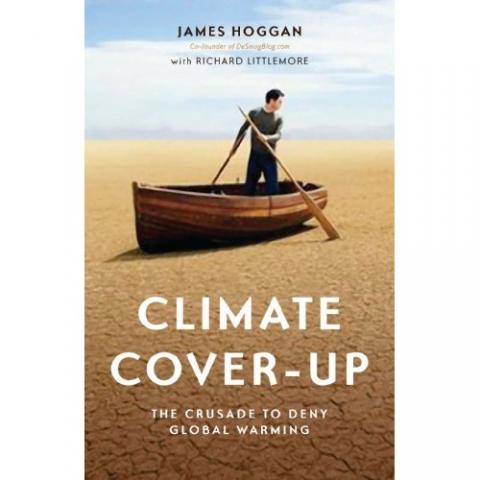Google AdSense may just be the answer to your financial needs. In my public relations Research and Strategies course, we were given the task to research a cool digital gadget. There were many from which to choose, however, nothing was cooler than researching a potential money-making gadget. Google AdSense is a popular advertising program that allows website/blog owners to make money.
Google AdSense has made it possible for individuals to receive payment for creating a website. By allowing Google's advertisers to display ads that are suited to the audience interests, people with websites and/or blogs are able to make a profit.
Google AdSense provides a selection of advertising formats to be placed on a website. Advertisers create their own ads and utilize the pay-per-click program by Google. Revenue is based on the number of pages viewed per day, the topic content, the price paid by advertiser for each click, and the number of people who click on the ads.
Have no fear, light traffic sites can generate substantial revenue if its topicc covers a competitive market.Google will issue a check 30 days after the end of the calendar month. The check must be $100 or more, otherwise the amount will be rolled over.
In the tough economic climate of today, more and more people are looking for convenient ways to make money and AdSense is a way to make that goal possible.

Quote of the week
The price of wisdom is eternal thought.
- Frank Birch
- Frank Birch
Sunday, April 11, 2010
Tuesday, March 16, 2010
Public Relations and Climate Change

Recently in PR Research and Strategies class we were charged to read and critique James Hoggan's book "Climate Cover-Up: The Crusade to Deny Global Warming." As a pr student, I am naturally inquisitive and always seem to have multiple questions concerning the subject area. Prior to reading Hoggan's book, I wondered how this master of framing could link public relations and climate change. It didn't take me long to uncover this mystery.
In "Climate Cover-Up: The Crusade to Deny Global Warming," Hoggan explained that although many politicians, climate scientists and grassroots activists have warned us about global warming, we've been inundated with PR firms using " Orwellian" language, junk scientists, and phony think tanks that say the opposite is true. Because of the millions of dollars given by major oil and coal companies to these public relations firms, those tactics have caused many to deny global warming exists.
There is an ethical base that PR practitioners must abide by, however, it is our responsibility to find out for ourselves. In the famed words of Ronald Reagan, "Trust, but verify."
Here are three questions for checklisting:
1. Does this "expert" have relevant credentials?
2. If an "expert" is talking about science, is he or she still practicing science?
3. Is this "expert" taking money from vested interests, or is he or she associated with idealogical think tanks?
Monday, March 15, 2010
Twendz
Twendz is one of the newest tools of communication used on the Internet. The Twendz idea was initiated by the Microsoft PR Firm Waggner Edstrom. Specifically, Twendz was birthed through Twitter, a fast-paced social networking site where users send and receive messages that are constantly updated called tweets. It is by no mistake that the language used by Twitter ironically begin with the TW prefix i.e. Twendz, Tweets,Tweople. This method contributes to the stickiness factor, causing its colorful language to be well remembered by its users.
Twendz is a twitter application that highlights particular topics of interest. It allows for one to go directly to a trending topic. It can be a product, service, or even a juicy conversation topic like celebrity gossip. Twendz can search topic history of tweets up to five hours and is able to generalize attitudes concerning the topic, product, or brand. I decided to use the intriguingly familiar topic of relationship blunders. Naurally, I went straight for the spicy trending topic of " #ThingsCheatersSay," and it did not dissapoint. At that point, Twendz became my virtual relationship coach, kinda. It provided me with endless streams of excuses.
Here are a few examples:
Reply View TweetRT @mya_yoyo: #thingscheaterssay WHATTTTTTTT do i look like Tiger woods???Purvaja:less than a minute ago.
Reply View TweetSorry honey, I had to work late tonight, and my car broke down on the way home, and my phone died too.#THINGScheatersSAYAtownboy4life87:less than a minute ago.
Reply View TweetRT @AndrewLythgoe: #ThingsCHEATERSsay I can explainDannyJayPeters:less than a minute ago.
It was fun using this feature because of the colorful responses of my "tweeps." It focused directly on my point of interest and caused unexpected laughter. Twendz was also useful in the area of consumer reporting. As a potential AT&T customer, I had my eye on the I-Phone. "#ilovemyiphone", allowed me to see what others thought of the product and their various experience with its functions. I give Twendz an "A" for helping to make my life easier in this Net Generation. Go and experience Twendz for yourself. Happy Twendzing!
Tuesday, March 2, 2010
Monday, March 1, 2010
Framing in PR

Climate Cover Up by James Hoggans highlights the use of framing techniques by PR executives. The definition of framing is to prearrange so as to ensure a desired outcome; fix. In public relations, it is imperative to maintain an ethical base. Honesty, Independance, Loyalty, Expertise, Advocacy and Fairness are all standards that must be upheld in any PR strategy. There is a disconnect when it comes to the understanding of PR activities and Spin doctors.
How far is too far? When does framing become unethical? The answer is when one of the standards of ethics is breached. In recent news Dominos Pizza used a commercial to expose Papa Johns use of puffery, stating that they made better pizza. The commercial was a hit. Ethics is needed as a system of checks and balances between an organization and its publics. Here's the video, tell me what you think.
Subscribe to:
Comments (Atom)
